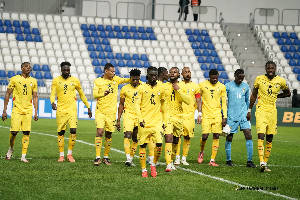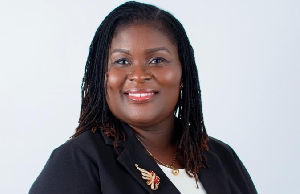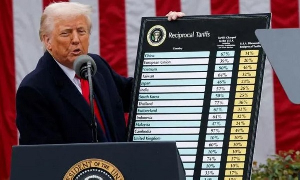As one can recognise, among countless factors that both underpin and drive society, schools undoubtedly are fundamental, with familiar businesses shuttered and cries for jobs it is easy to determine the contemporary relevance and usefulness of our schools. The paradox here needs explaining, and resolving.
Let me extend the Old Testament paradigm, “Where are you?” about the schools in Ghana. According to the Book of Genesis 3, the question was presumably meant to express accountability so much so that it aroused Adam’s sense of being lost.
The depiction of education as a theoretical idea in Ghana is a fraught process for many who go through our school system. The focus is on preparing students for final exams i.e., WASSCE has created monsters we call: extra classes, vacation classes et cetera. The lure is a euphoria of sorts with several coinages i.e., inner perimeter, one touch et cetera. The venom is the promise of securing the learner ‘apor’ examination papers ahead of the scheduled exams.
What we see in schools these days is unconscionable, schools actively engaging in acts of exam malpractice and this is no farce! A gimmick that solves
nothing but only postpone the day of reckoning.
To be clear these classes may not be bad when it is used to address specific learning gaps or concerns of a learner. The unintended consequence is that this is generalized not considering the individual learner’s challenge defeating its very purpose. The worst part is school breaks and vacations have been filled with classes, hardly ever allowing the learner to consolidate the information gathered.
We greatly underestimate the value of breaks when learning, breaks play just as important a role in learning, allowing the brain to process, organize, and integrate learned information to optimize storage and recall. This is according to Leonardo Cohen, a neuroscientist and the senior author of a June 2021 study published in the journal Cell.
Now there are other problems and possible problems facing us. Governments ‘hurried’ vision for education is incoherent and at best ‘a map of a city without a highway.’ Perhaps, we should be asking ourselves if the outcomes from the schools meet our demands or if there is something more… So here is a rehash “Where are you?”
It would seem, we have a duplication of ritual, the parallelism of sacrifice is clear. Unlike the significant exegesis in the Book of Genesis 3 which reveals animal sacrifice, unraveling the practical difficulties and progress of our schools is an open question. It wouldn't help if some others were shushed and told there is no simple answer to the complex problems that are beyond our comprehension.
It is not a secret, the open dislike for vocational schools so instead of accentuating the differences between academic subjects and vocational subjects, secondary schools should focus on links between those subjects and their interdependence.
First of all, through Integrative Learning, students can practice across courses and between campus and community life. This allows students to apply their intellectual skills and develop their individual purpose, values, and ethics. Integrative Learning generates internal changes and growth as a confident lifelong learner.
Finally, the structure of Physical Education as a vocational subject offers a unique platform on which to explore a multitude of other vocational subjects (i.e., already existing subjects such as ceramics, painting, crop husbandry, animal husbandry, food and nutrition, sewing, computer programming, and design, music et cetera as well as carpentry, electricals, and plumbing.) For context, a Home Economics student may opt for animal or crop husbandry because he/she wants to learn firsthand about the food value chain, just like any student would opt to play basketball. After all, they want to be a professional someday.
It is instructive to note that resources already exist and the efficiency of this proposal will be to optimize the already existing resources. Based on the final point, we can take a cue from the success of the school cadet corps
which offers a unique insight into how professional bodies like the Police service and the Military have over the years helped sustain the cadet corps in the various schools.
At an age when graduates are becoming increasingly jobless and critical infrastructure is foreign-owned, it’s become evident that the focus on exams means that other potential aims of schooling are not achieved. In a complex, rapidly changing, and increasingly connected world, the capacity to integrate and apply learning is not just a beneficial skill, but a necessary one.
Click here to start the nomination process for the 2023 GhanaWeb Excellence Awards
Opinions of Thursday, 28 September 2023
Columnist: Setor Y. Nyadroh















